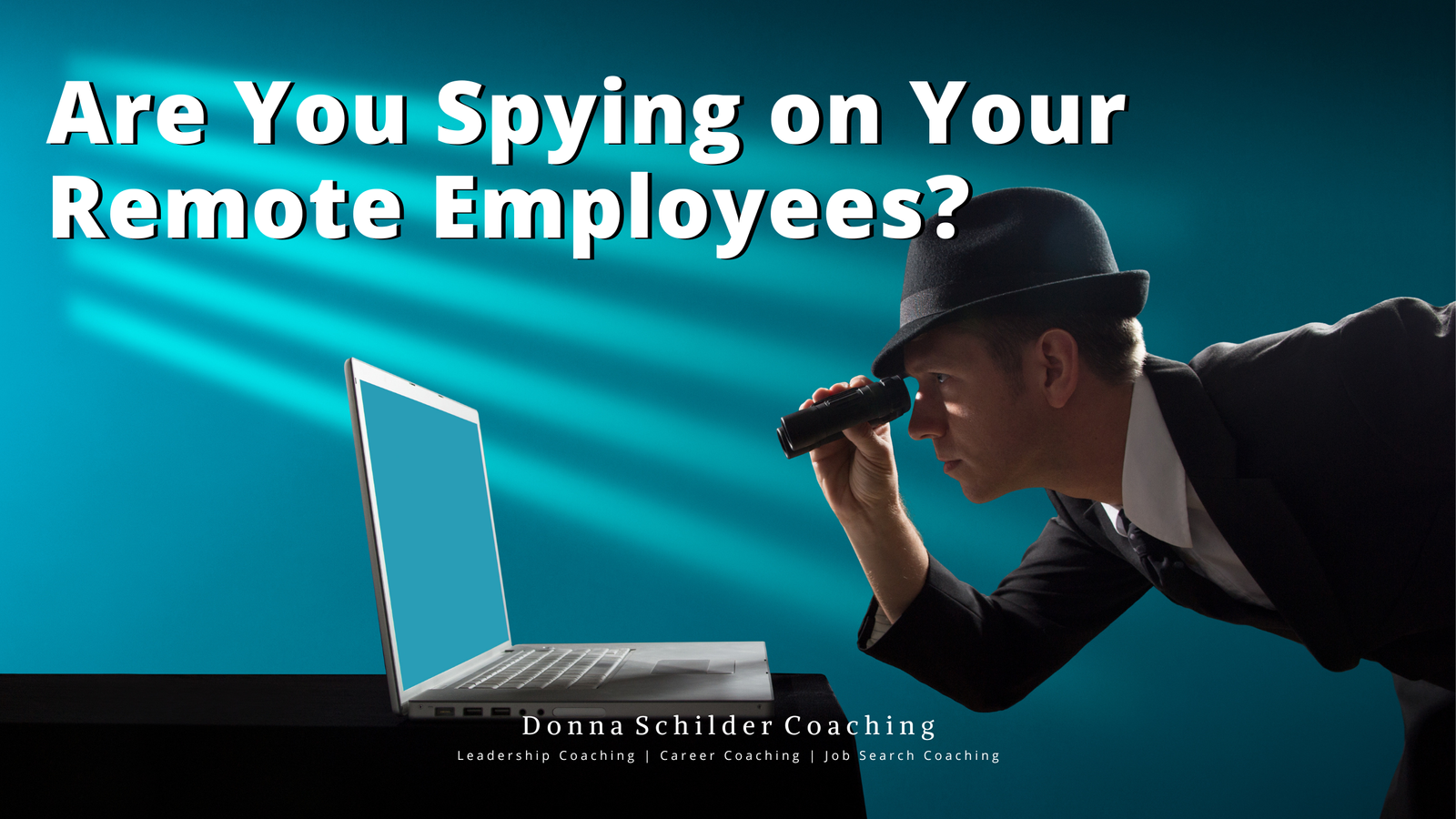What’s the difference between spying on employees and measuring their productivity?
It’s a fine line, and companies are straddling that line, causing them to act unethically and, more importantly, erode trust with their employees.
The problem isn’t new. However, it has been brought up more often now that more and more people are working from home. Managers feel less secure that their employees are working because they can’t see them.
But looking at employees at their desks and ensuring they are on their computers isn’t a great way to measure productivity anyway.
So, how does a manager know if each employee is productive (whether in the office or working at home)?
In response, some companies have taken productivity surveillance tech to the next level, “measuring keystrokes, mouse movements and even going so far as taking screenshots of employees’ monitors at random intervals.” – Ryan Wong, Entrepreneur Magazine (4/8/21)
The Problem with Productivity Surveillance Technologies
Unfortunately, the use of productivity surveillance technologies:
– Equates to micro-micro-management
– Doesn’t measure the quality of work, just the quantity of keystrokes or time onscreen
– May incentivize behavior that doesn’t represent productive work
Surveillance technology has led workers to engage in “productivity theatre,” gaming the technology by typing gibberish to get a high keystroke count, moving their mouse a lot, and ensuring their computer screen is constantly on work screens while not working.
“78% of employers use software to spy on employees. But the research — and common sense — shows that this tempting practice does far more harm than good. And 83% of employers acknowledge that it’s ethically questionable. When you spy on your people, you trade trust, culture, and morale for sketchy data and productivity theater.” – Mark Banfield, Entrepreneur Blog 12/23/22
We know of one company that did in-person worker spying with cameras that also recorded employees’ voices. When several people were disciplined for saying negative things about the CEO, everyone discovered they were being filmed. The sense of distrust this created resulted in a 10% employee exodus.
Alternatives to Spying on Employees
I posted the question above for input from LinkedIn members and here are a few of the comments I received:
“We are in a period of chaos in so many ways re: the economy, the workplace, the world, but bottom line is the bottom line. Companies AND employees that are focused squarely on results and impact do the best vs. getting bogged down in micromanaging and the swirl of distrust. Do the work and prove your value; if the company is unable to see that value, move on to the organization that gets it.…I wholeheartedly agree with the laziness of companies who use the keystroke monitoring. In fact, I could rant about what I think about all the tech EZ buttons being used by companies for ‘business processes’, ’employee management’ AND ‘customer no-service’. It’s creating a rot at the core of operations and the natural, tailored communications and personalized interactions that should be re-prioritized!” – Jacqui Barrett-Poindexter, Master Resume Writer
Here’s what commenters said managers should do instead:
“Goodness! This is so untrustworthy! When working at EDS, a study showed that on an 8-hour day, an employee worked 6 hours. So they wanted us to do self-development for 2 hours. Frankly, a leader should develop a connection with each of his team, and set expectations and goals with metrics for underperforming, performing, and excellent performing. Also, talk with each team member about their desires and goals so that they can set objectives that can help them achieve those goals eventually.” – Chris Sier, PCC, BCC, Career, Leadership, and Job Search Coach
“The only true way to measure productivity is output to KPI’s. If I hire on salary, 2 people to sell $1M each in services a month, and one does it in ~1 hour and the other takes ~30 days, aren’t they both productive and didn’t I get what I paid for?
Companies should save the dollars they’d spend on spying and put it to training their managers for the new world.” – Kevin D. Turner, Managing Partner & Brand Strategist, TNT Brand Strategist, LLC
“It’s one “micro” in micro-management too many Imho. I’m a fan of focusing on employees meeting goals and milestones – and most of my clients are as well.” –Virginia Franco, Executive Resume Writer
“Well, if you want to get rid of your talent and engage in costly turnover antics, spying on your people is a great way to go. Companies should be measuring people on results, not on how busy they’re acting.” – Jennifer Jank, Business Coach





